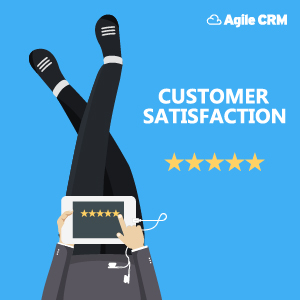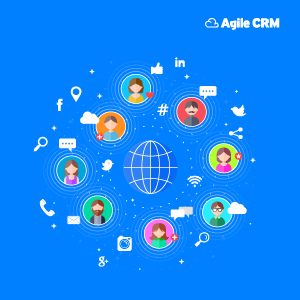What is the difference between brand advocacy and influencer marketing?
You have probably heard the terms “influencer marketing” and “brand advocacy.” On the surface, they can sound like the same thing. However, that could not be further from the truth. In reality, each one can occupy a specific niche in your digital marketing strategy.
Each of the two is important for different reasons. Equally, each of them fulfills a unique need and can be used for distinct purposes. But what is the difference between them? How can you utilize them both to move your marketing efforts forward? Below we dig into the topic to shed some light on the nuanced differences between the influencer and the brand advocate.
What is influencer marketing?

An industry influencer is an individual who is considered to be an authority and thought leader in their industry. For example, Warren Buffet is certainly an influencer in the investment community. People look to him for advice and expertise to help guide them along the road to success. He is an example of a big-league influencer—one that you’re not likely to get a response from if you want to engage in influencer marketing.
How to identify an influencer
In your specific industry, you can find plenty of influencers who people similarly look to for advice and guidance. Look for individuals who run a highly successful and widely-read blog in your industry. Or, keep an eye out for those who have an enormous social media following. They are easy to spot if you know what to look for. They are semi-famous in their own industries and many charge a fee for their collaboration.
Influencer marketing, when done properly, can generate a significant return on investment (ROI). According to a survey by Tomoson, businesses are making $6.50 for every $1 spent on influencer marketing. That’s nothing to scoff at.
However, you should be careful with influencers. An infographic on influencer marketing by Tapinfluence and Altimeter reports that 69.4% of influencers decide to be influencers so they can earn money. Many are not as interested in your industry or topic as they might appear to be, but rather are in it to make a buck. So be wary of those who would try to sell you’re their influence right out of the gate.
What is brand advocacy?

Brand advocacy, on the other hand, refers to the promotion of your company by everyday people who love your brand. These include your employees, your highly satisfied customers, or anyone else who has an affinity for your product or service. If they love your company, they will engage in brand advocacy in conversations with their friends, family, and peers.
Anyone who is willing to recommend your product to another individual is a brand advocate. I would venture to say that brand advocacy have the potential to drive a greater ROI and have a larger impact on the success of your marketing campaigns than influencer marketing.
Although influencer marketing is a hot topic right now, consider these statistics from an infographic by Convince & Convert:
- 92% of consumers trust recommendations from brand advocates. (Nielsen)
- 18% of consumers trust recommendations from industry influencers. (Forrester Research)
How do you leverage industry influencers?
First, you want to identify the right influencers for your company and audience. Then, consider how to reach out to them to propose a mutually beneficial collaboration. There are many tactics and strategies for leveraging influencers in your marketing efforts.
Mutually beneficial collaboration

Once you have established a relationship with an influencer, you can propose things like exchanging guest blogs, interviewing them for podcasts, co-authoring blogs with them, and more. Once you have produced some content or other type of deliverable in collaboration with your influencer, it’s time to blast the results everywhere you can. That includes social media, your email newsletter, or even a press release if the resulting product is newsworthy.
Tapping into your influencer’s network

Your influencer will also share the results of your work on their social networks, and that is where the real value of influencer marketing comes in. You get exposure to their entire network, which vastly increases the reach of your content and your brand recognition to a mostly new audience. When your influencer’s followers see that they are working with you, they will take notice and ideally navigate to your site to learn more about your product and what you do.
How to generate and utilize brand advocates
There are several ways to generate brand advocates. Here are a few of the primary methods for generating and leveraging them:
Focus on customer satisfaction

One of the best ways to generate brand advocates is to deliver a world-class customer experience and maintain high levels of customer satisfaction. It is predicted that, by 2020, the customer experience will replace price and product as the key brand differentiator. You must make efforts to keep them happy because if you do so, they will more likely advocate for your brand.
Maintaining satisfied customers also builds brand loyalty, which not only positively affects revenue but also helps generate brand advocates. Accenture reports that 55% of U.S. consumers express brand loyalty by recommending the brands and companies they love to family and friends.
Maintain happy employees

Your employees have the potential to be terrific brand advocates. Treat them well, and they are likely to recommend your company. Run employee engagement programs to help them feel like part of the family. Distribute workplace satisfaction surveys and implement some changes based on the results to help them feel heard. Create a positive work environment where praise is given, and employees are rewarded for a job well done.
This will make them feel more motivated and build morale. Motivated employees work harder and are also more likely to speak to their friends about your brand.
Find them on social media

If you use social listening and monitoring tools, you can be alerted in real time when someone mentions your company’s name on social media. When they do, you can engage them immediately, and give them praise for their kind words. They will appreciate this immensely. When they return to social media and continue to talk about how awesome your company is, you will have created a social media advocate.
Conclusion
Both industry influencers and brand advocates have their part to play. Influencers are more difficult to obtain, but they certainly do generate a significant ROI for your efforts. Brand advocacy fills a different need: word of mouth advertising. It’s one thing for an influencer or yourself to tell someone how great your product is. But it’s another thing entirely when that advice comes from someone they know and trust personally.
Ultimately, you may have relationships with a handful of influencers, but you can have hundreds of brand advocates. Brand advocates do the work of promoting your brand on their own. Collaborating with influencers to promote your brand takes time and other resources but can be worth it if you tap into the right influencer. The trick is to know who is right for your brand and audience.
Do you have any tips or lessons learned from brand advocacy or influencer marketing? Share them with us in the comments section below!

No Comments